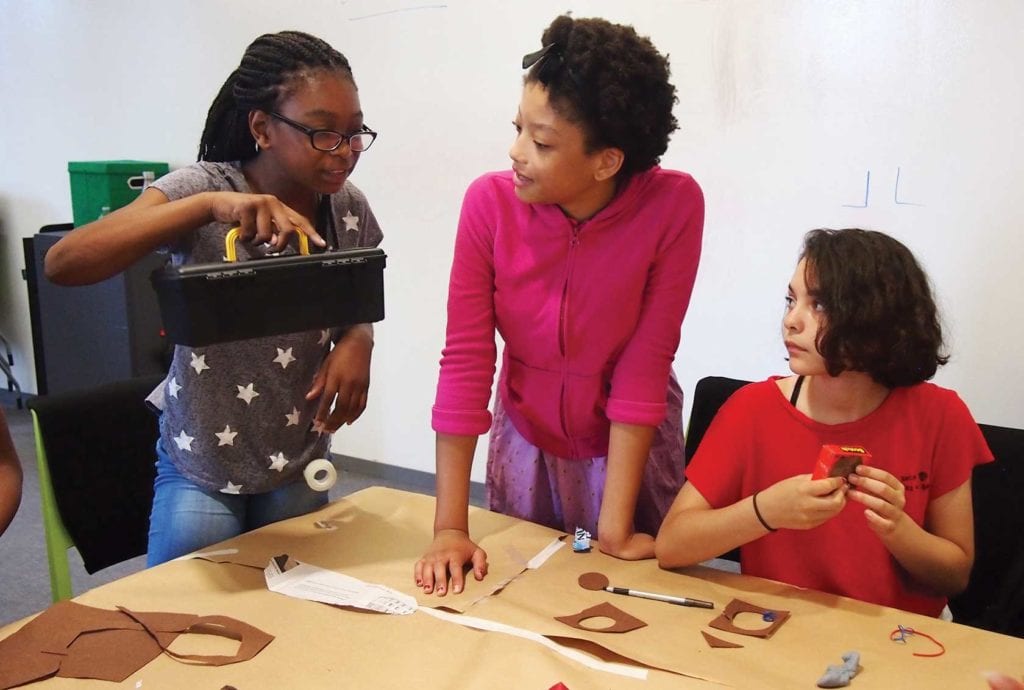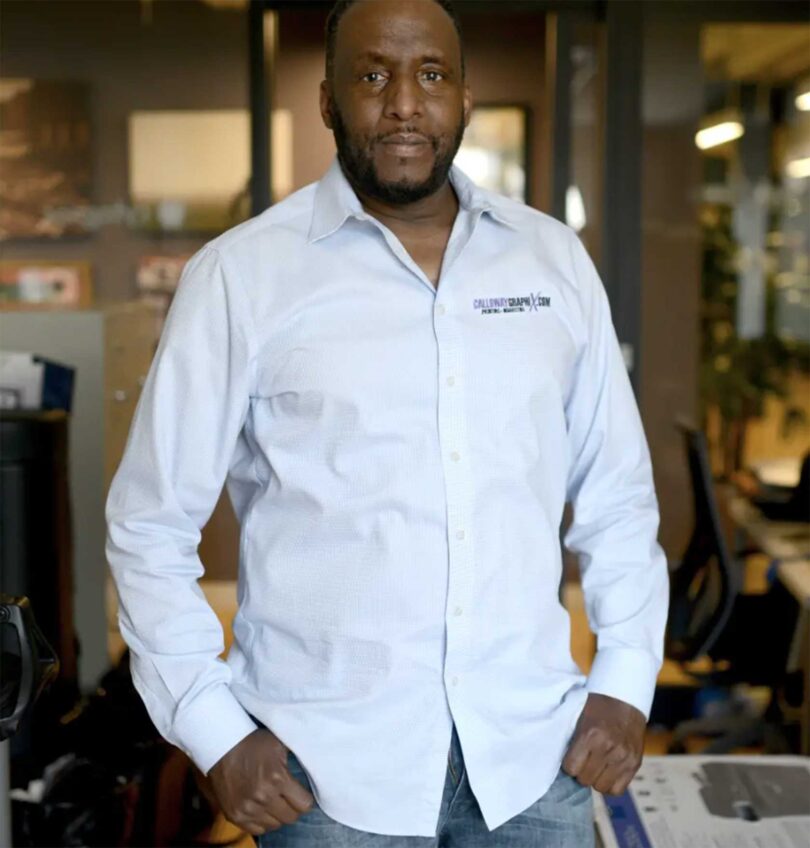Students become entrepreneurs at Roxbury Innovation Center
The summer program teaches Boston youth about product development and digital design.

In the Roxbury Innovation Center offices on the second floor of the Bruce Bolling Municipal Building, three dozen students are imagining being stranded on an island in the Pacific Ocean with nothing but cardboard, plastic cups, toothpicks, scissors and glue to make any tools or articles needed for survival.
It’s not a circumstance many are likely to find themselves in, but rather an exercise meant to help them think about problem-solving and product design. One student fashions a pair of cardboard sandals.
“We’re teaching them through design challenges to get them thinking about how to design products,” says Herb Lozano, events and marketing coordinator for the Roxbury Innovation Center. “They actually have to create products that really function.”
The middle and high school students are engaged in one of the Roxbury Innovation Center’s two-week summer program sessions, learning about computer-aided design and other aspects of product development.
“They learn about the various stages of designing and testing a product,” Lozano says. “Every student will leave with a portfolio that has market research, a digital design of a prototype and an actual prototype.”
During the two weeks, students have access to many of the resources available to the adult entrepreneurs who attend classes at RIC or participate in their pre-accelerator program, a three-month crash course in business development.
Business pre-accelerator
The Roxbury Innovation Center was founded in 2015 as a joint venture between the City of Boston and Venture Café Foundation. The nonprofit organization has a mission to help equip local entrepreneurs to launch and grow businesses.
Participants in the pre-accelerator program are assisted in creating a business model and putting together a business plan. They receive coaching on how to pitch their product to investors. At the end of their pre-accelerator training, they take part in a pitch competition. After the program, participants are encouraged to apply to accelerator programs run by RIC’s partner organizations, including Epicenter Community and Smarter in the City.
Entrepreneurs who have completed the pre-accelerator program include a wig-maker, food service business owners, an event planner and several app designers. Lozano says one of the graduates developed a task management application, Golden Hour, that is selling.
“I actually have it on my phone,” Lozano says. “I use it.”
The pitch competition for the current pre-accelerator cohort will be held August 21. Six entrepreneurs will present their ideas before a panel of judges, then members of the general public will be able to pitch their ideas to the panel.
In addition to the two cohorts of six entrepreneurs who have come through the pre-accelerator program, RIC has helped dozens of other entrepreneurs and small business owners through workshops on business- and technology-related topics from marketing to coding.
RIC also creates opportunities for local small businesses by bringing their services and products into the Bolling Building, notes RIC Director Lanita McCormick.
“We ask people who rent our space to contract with local food businesses,” she said.
Design exposure
The summer program students may be years away from launching a business, but while at RIC, they have a close-up view of the process of launching a business. Last week, product developers from the New Balance athletic shoe company discussed the product development process with the students. This week, the students are scheduled to visit the New Balance manufacturing site in Lawrence.
“They’ve been able to see New Balance products that haven’t been released yet,” Lozano says. “They’ve been able to take everything they’ve learned from New Balance and use it in their own product development process.”
Gia Manigat, STEM program manager for RIC, notes that the program brings more than just training.
“The biggest value is that they’re exposed to things they’re not exposed to in school,” Manigat says. “In summer camps, they’re usually playing outside. Here they get to learn something they can carry back to their school year.”
For now, a Meridian Academy 7th-grader named Natalia is focused on how to survive on that Pacific island.
“We have a list of things to make, things that could help us with food or shelter,” she says, turning her attention to the building materials on her table.







